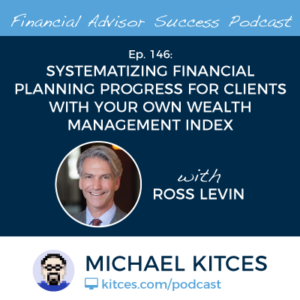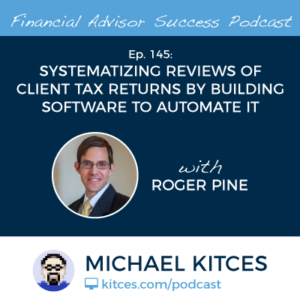In the early days of being a “financial advisor” at a broker-dealer or insurance company, having ’expertise’ meant being well-trained on the company’s products and their features and benefits. ‘Training’ at large financial services firms was primarily focused on product training (and perhaps training in how to sell those products), with the benefit that when the scope of required knowledge is fairly understood – just the features of a handful of the company’s most popular best-selling products – it takes relatively little time to train in the first place. In other words, training up an advisor’s expertise was rather simple and speedy, because the advisor just had to master the inner workings of a few select products.
In the modern era, though, as financial advice is increasingly comprehensive and holistic, the breadth of what it takes to have ‘expertise’ goes far beyond what was required in the product-centric world of 20 years ago. Yet unfortunately, the reality is that the minimum bar to become a “financial advisor” – generally, a Series 6 and 63, 7 and 66, or a Series 65 exam – is largely unchanged through this shift, built around 3 hours of regulatory exams that most can study for and pass in just a few weeks. The end result is that ‘advisors’ are licensed to provide comprehensive financial advice, with no actual requirement to have any training, education, or experience, in personal finance or advice itself.
On the one hand, a voluntary desire to improve financial planning expertise has led to rapid growth of CFP certification in recent years, with more than 5,000 CFP candidates completing the exam process in 2018, up from approximately 3,000 in 2013. Still, though, the total penetration of CFP certification is still less than 86,000 out of approximately 311,000 financial advisors (or barely more than 25%). Which makes it incredibly difficult to deliver financial planning advice efficiently… when the advisor has to research any and every question the client asks, because they lack the depth of expertise to actually know those answers offhand in the first place.
In fact, recent Kitces research on “How Financial Advisors Actually Do Financial Planning” finds an emerging “Experience-Expertise” gap, where having CFP certification reduces the time it takes to complete the first-year financial planning process by 22%, and that amongst the most experienced advisors, having CFP certification reduces the time of the financial planning process by a whopping 44%. As the more experienced the financial advisor, the more confident they tend to be, and the more affluent and complex clientele they tend to attract… which means advisors with more experience actually end out spending even more time to get through the financial planning process (despite the availability of technology, and their years or decades of experience doing it!).
Similarly, more experienced financial advisors also tend to increasingly struggle with the time efficiency of financial planning, because an increasingly complex range of clientele means an ever-widening range of complex situations that the advisor must provide advice on. Notably, though, the real challenge isn’t that more experienced advisors tend to have more sophisticated clientele with more complex needs, but that their needs are differently complex. Which means formulating a niche or more specialized expertise for a particular target clientele can not only be effective for marketing purposes, but also becomes a substantial efficiency improvement, as once the advisor researches and ’learns’ how to handle a particular complex situation, it becomes repeatable expertise for the future as well.
In addition, crafting a more repeatable financial planning process also makes it possible to improve the efficiency of financial planning by leveraging paraplanners who can do not only a portion of the back-office work in financial planning preparation, but even limited-scope portions of the financial planning meeting process as well. Such that, in practice, solo advisors who leverage a paraplanner are able to service an average of 64% more clients and generate 80% more take-home pay by better aligning the tasks being done to the skill and experience (and compensation) level of the team member.
The bottom line, though, is simply to recognize that the majority of the time spent in the financial planning process isn’t actually in the phases of Analyzing and Developing the financial planning recommendations themselves, but also in Establishing the relationship, Gathering data, Presenting the plan, Implementing it, and the ongoing Monitoring process (and the never-ending stream of financial planning questions that crop up from clients along the way). Most of which are human-to-human interactions and communication (either in-person, by video, or via email)… which means the key to improving their efficiency is not necessarily investing in the technology to better automate those processes, but instead investing into the human capital of advisors themselves with deeper and more focused expertise, and a wider range of skill levels to which various financial planning tasks throughout the process can be appropriately (and cost-effectively) matched.

 Welcome back to the 146th episode of Financial Advisor Success Podcast!
Welcome back to the 146th episode of Financial Advisor Success Podcast! Welcome back to the 145th episode of Financial Advisor Success Podcast!
Welcome back to the 145th episode of Financial Advisor Success Podcast!
